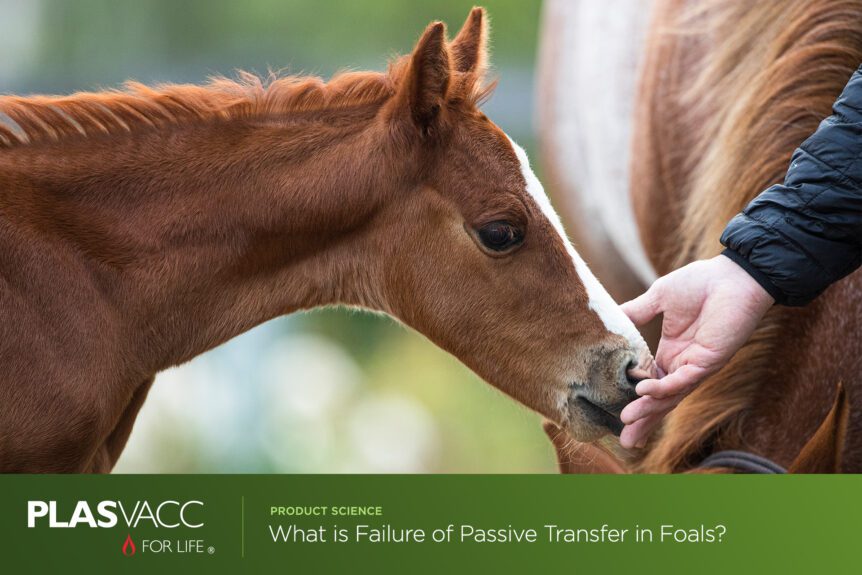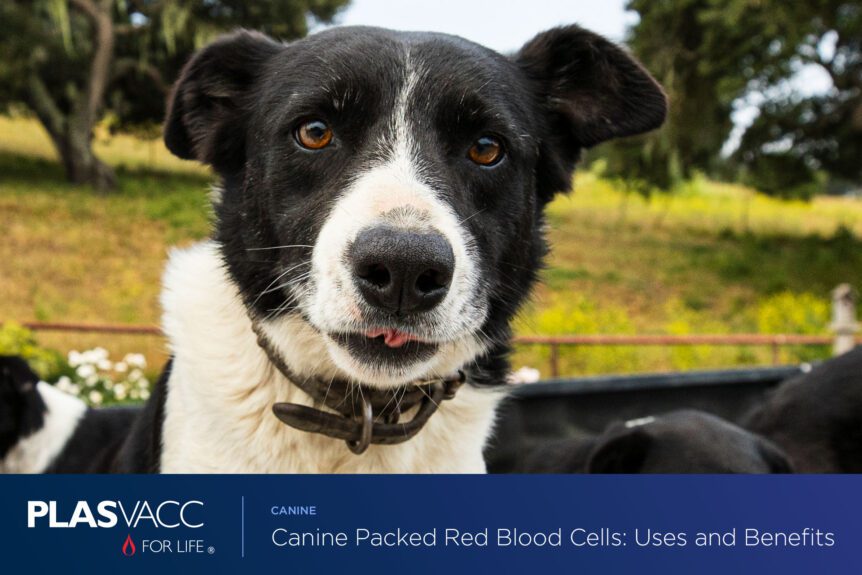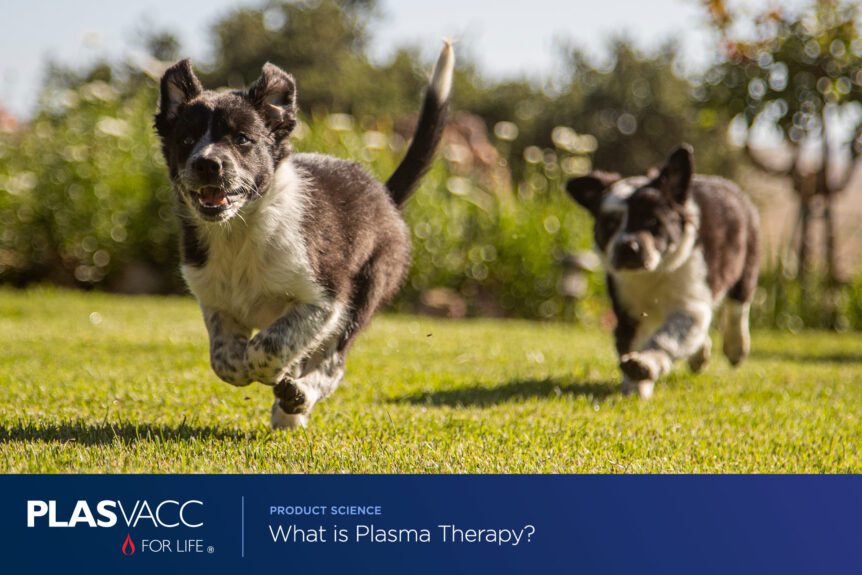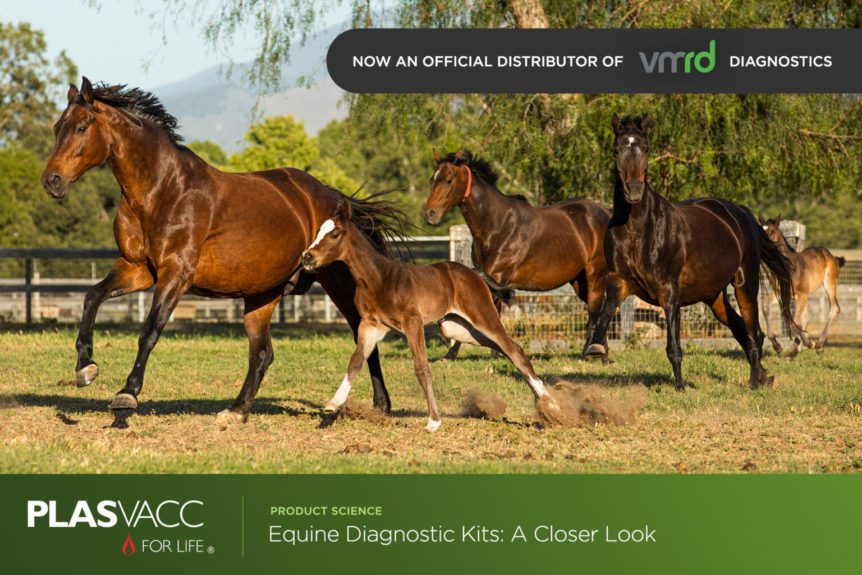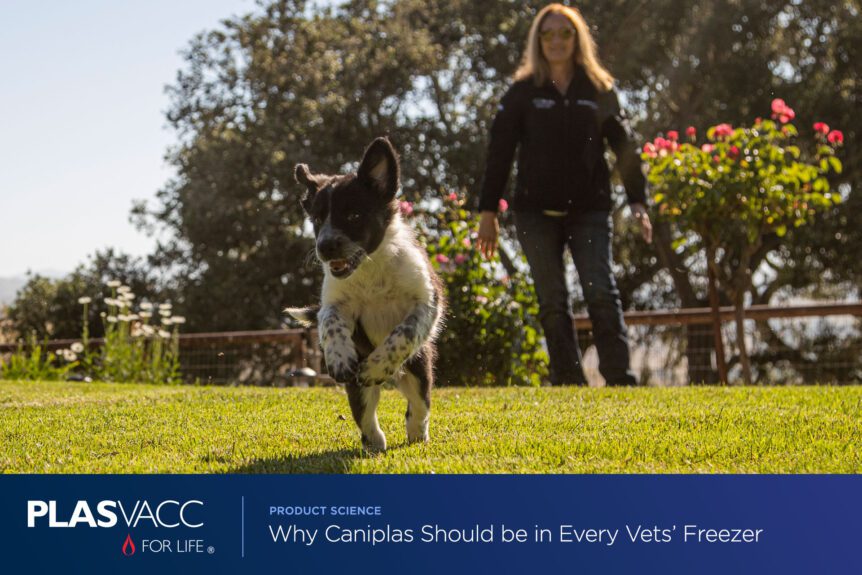Veterinary professionals working with horses know just how devastating Failure of Passive Transfer (FPT) in foals can be. A serious condition that places newborn foals at risk of developing life-threatening complications, FPT can occur in 10-20% of foals, which in Australia alone can account for nearly 3,000 foals in a given year. At Plasvacc, we’ve worked hard to develop Equiplas, …
Canine Packed Red Blood Cells: Uses and Benefits
As any veterinarian will know, canine packed red blood cells are an incredibly effective tool to have in your treatment arsenal. When a dog is in need of a blood transfusion, packed red blood cells (PRBCs) are often the go-to solution. Produced by removing much of the plasma from whole blood, PRBCs are a critical part of modern veterinary medicine, …
Introducing Our Partnership With Anubis Retirement
At Plasvacc we’re extremely proud—and honoured—to be in a position to give our donor dogs (ex-racing greyhounds given a second chance at life) full opportunity to live out their best days both during their donation career with Plasvacc, and beyond. With a strict commitment to animal welfare, it has always been our mission to ensure our donor animals want for …
What is Plasma Therapy?
Hypermmunised plasma, such as that which comprises our entire range of plasma treatments from Equiplas, to Caniplas to Camelplas, has become an indispensable tool to veterinary practices all over the world. But what is plasma therapy and how did it come to be? In a veterinary context, at its simplest, plasma therapy involves administering plasma or plasma-based products to increase …
Queensland Dignitaries Visit Plasvacc In Recognition Of Contribution To Regional Export Market
KALBAR, QUEENSLAND — Plasvacc Pty Ltd hosted a delegation of Queensland dignitaries at its Kalbar headquarters on Tuesday, November 22. Led by Queensland Assistant Minister of Treasury, Charis Mullen, she was joined by Trade & Investment Queensland’s Southern Regional Network leadership team of Manager, Reg Roberts and Principle Trade and Investment Officer, Julie Mark. The Queensland Government’s global business agency, …
Plasvacc Named ‘Best Small Business’ at 2022 Premier of Queensland Export Awards
KALBAR, QUEENSLAND — Plasvacc Pty Ltd is proud to have been selected as “Best Small Business” at the 2022 Premier of Queensland Export Awards, held to recognise the state’s top contributors to its robust export industry. Hosted by Premier Annastacia Palaszczuk and Treasurer and Minister for Trade and Investment, Cameron Dick, a total of 34 Queensland companies competed across 13 …
Evaluating the Benefits of Equiplas: An Interview with Dr Jaco Joubert, BVSc
With its efficacy in treating so many different indications, it can be hard to overstate the role Equiplas plays in equine practices across Australia. We sat down with Dr. Jaco Joubert to learn about how he incorporates Equiplas into his practice as well as his thoughts on the role equine plasma has played in the wider veterinary field. (The following …
Equine Diagnostic Kits: A Closer Look
While we’ve built our name and reputation on over three decades of providing the safest, most effective equine plasma we can, we’re also proud to serve as a trusted source for safe, timely and effective veterinary diagnostic solutions essential for both acute and preventative care for your equine patients. As they say, an ounce of prevention is worth a pound …
Plasvacc Expands to UK, Acquiring Veterinary Immunogenics
PENRITH, UNITED KINGDOM — Plasvacc UK Ltd. is pleased to announce its entry into the United Kingdom through its acquisition of Veterinary Immunogenics Inc. Effective immediately, Plasvacc will undertake the day-to-day management of Veterinary Immunogenics under the oversight of site manager Fergus Macarthur. Incorporated in 1992, Veterinary Immunogenics has been producing and supplying hyperimmunised equine plasma products for veterinary use …
Why Caniplas Should Be in Every Vets’ Freezer
The process of plasmapheresis has been a staple of modern medicine for nearly 60 years, enabling countless therapies across a wide variety of care disciplines. And while its introduction into veterinary standards of care took several more decades, the process was originally successfully proven all the way back in 1916 with a canine patient. Today, the procedure has benefitted from …
- Page 1 of 2
- 1
- 2
